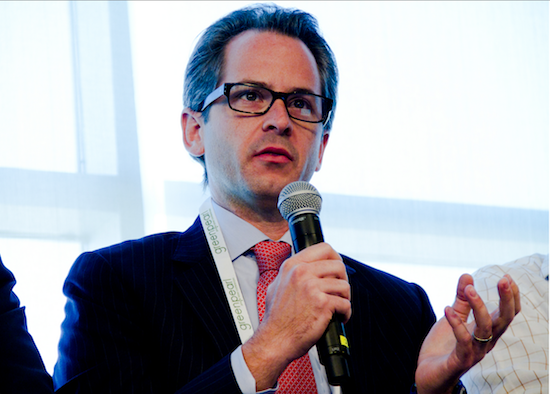Massey Knakal’s Real Estate Summit brings out the best & the brightest
Tales of Movie Stars Touring Coney, Cries of 'Jed Walentas for Mayor..'

Screen Shot 2013-09-18 at 2.36.29 PM.png
Twenty percent of the apartments TF Cornerstone plans to build at the site of a Downtown Brooklyn parking garage will be affordable housing, a company executive revealed.
The 600,000-square-foot development at 276-300 Livingston St. – which Jeremy Shell referred to as 33 Bond, its side-street address – will have a “different aesthetic” from Cornerstone’s residential properties in Long Island City and Manhattan, the senior vice president of acquisitions and finance told a crowd at the Massey Knakal Brooklyn Real Estate Summit Tuesday.
“We want to create neighborhoods,” said Shell, whose firm is headed by high-profile brothers Tom and Fred Elghanayan. “We’re consciously thinking about who the renters are and what attracts them.”